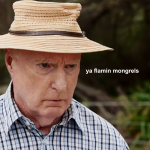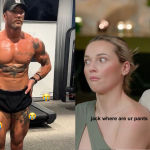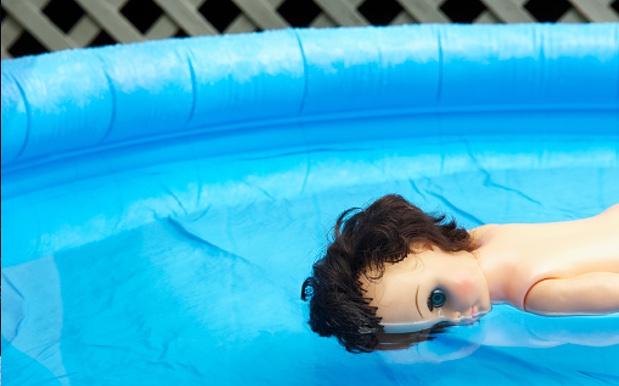
“Get in the kiddie pool, Will.”
It’s almost midday on a hot Sunday. I’m sitting in a backyard in Chippendale, watching Gary, the keyboard player of one of Sydney‘s most prominent bands, splash around in a kiddie pool.
“I… I don’t think it’s a good idea, man.”
“Yeah, but, just get in the kiddie pooooool.”
I’ve been taking MDMA, in larger and larger quantities, consecutively, every day for the last four days.
I’m not an idiot. I’ve done enough research to know what happens when you do too much MDMA; the diminishing happiness returns as your brain’s serotonin levels are quickly depleted.
But as it turns out, MDMA still seems to work if you do it two, three, or four days in a row – nestled away in my brain’s bank account of serotonin, there’s always something left to pay with.

It doesn’t exactly feel right… but it definitely feels like something.
Until now, my fiancé and I have always been what you could call “responsible drug takers” – occasional users of MDMA with no less than 6 – 8 weeks between doses.
But five weeks prior to this particular Sunday, after a series of personal crises, we both went off the rails. We’d always been the stabilising force in each other’s lives – suddenly we were enablers.
Every week became shittier as the comedowns got worse, and every Friday and every Saturday there was another seemingly unavoidable reason to take caps.
“It’s Eva’s birthday, dude, we have to take caps.” “We’re seeing Blur, babe, we have to do caps.” “I bought some caps, so we have to do caps.”
But this weekend, by the third day, Katie was done.
We were at a party and I’d just – surprise – bought four caps. I hadn’t consulted her before purchasing.
“I’m going home. I’m over it. I can’t take it anymore. I’m going to be really fucking angry if you do those caps, but it’s your body, do whatever you want.”
I nodded slowly and shoved two of the caps into my mouth.
My reasoning at the time was that if she saw me taking the caps then surely she’d be too tempted to resist.
My reasoning was wrong.
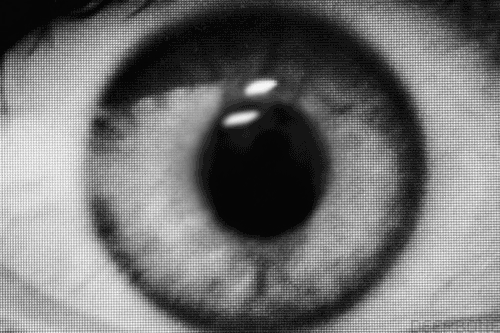
“Get in the kiddie pool.”
“If I get in that kiddie pool, I am going to fucking die, Gary.”
“It’s one foot of water!”
“I’m so buckled dude. If I stand up, my ankle is going to snag on that rock, I’m going to fall into… that.” I gesture at a very spiky, rusty, 19th-century stove that was sitting in the backyard near the kiddie pool.”
“I’m going to hit my head, I’m going to fall into the kiddie pool and my broken head is going to fill it with blood. And no one wants that.”
Silence.
“Yeah, but… get in the kiddie pool.”
I look at the rest of the group. Everyone has been bending. Not as hard as me, but I still feel like I’m somehow the sanest person here.
Each person’s face seems to have the consistency of Play-Doh, clay heads on sticks with dead eyes and blank smiles. “We’re having a great time,” their eyes seem to plead. “WE’RE HAVING A GREAT TIME, OKAY?”
Everyone’s talking about football. I hate football. Who does MDMA and talks about football? Aren’t we supposed to be talking about our feelings?
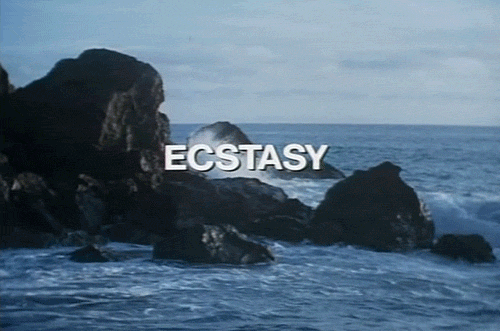
I notice that Gary is now the wrong way over, face down in the kiddie pool. Drowning. In one foot of water.
“Gary is drowning.”
“Can someone un-drown Gary?”
I feel a tap on my knee. Mikey, who, as of five’ o clock this morning is my new “best friend”, leans in.
“Are you as afraid as I am?”
“Yes. Yes, I definitely am.”
“Do you want to go inside and hug each other? And cry?”
“…Yeah.”
In four days I’d spent $1200 on drugs, cabs, alcohol, and, as I would discover three weeks later, a totally forgotten eBay purchase of a DVD box set of the bittersweet 1985 sitcom The Golden Girls.
I swore that I would never “bend” again – a resolve that was only reinforced by the recovery to come.
The following days were shrouded in a fog of lethargy and what I call “brain zaps” – My eyes would involuntarily close throughout the day and I’d briefly drift off, only to wake suddenly with a sharp, terrifying electric jolt.
It was two weeks before I began to feel normal again. Even once the brain zaps had stopped, for the first time in my life, I felt truly hopeless. I couldn’t remember what normal, happy, or sane felt like – and I couldn’t convince myself that I’d ever feel okay again.
For me, it was a wake up call. A lapse in judgment that served as a harsh reminder of my limits and my mortality.
But for many people I know, it’s an ongoing, weekly cycle. It’s easy to see why when the rhetoric surrounding drug use in Australia is so limited.
Annie Bleeker is a peer educator and researcher. She says politicians think the public wants a tough approach on drugs, but questions whether the politicians have got the public mood right.
“Politicians think the public wants a tough approach on drugs, but if you talk privately to a lot of people in high positions you’ll see that they are drug users.
“It’s still in the illicit nature of drugs that people are afraid to come out and say they are a drug user because of the legality.”
“Doing more outreach and more peer education at parties, clubbers being able to talk to other clubbers about it in a non-judgmental way – plus drug checking – is a really great strategy, and I think we should be adopting it.
Annie says she’s still sceptical about how quickly that’s going to happen: and when you look at the way the NSW Government, for instance, launched its widely ridiculed #StonerSloth anti-marijuana campaign, for example, it’s hard to disagree.
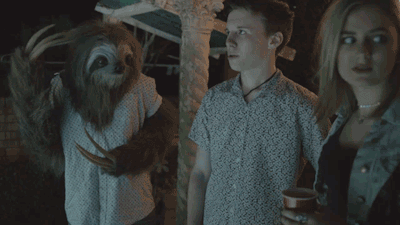
This country really does need a more engaged, more complex, less judgmental way to talk to people about drugs.
For the moment, public policy is still in the kiddie pool, and in danger of drowning.
Photo: Getty Images.
